From their first year to their last year, students in the Donald P. Shiley School of Engineering undergo targeted and specific experiences to prepare them for their professional futures. These experiential learning opportunities, both in and out of the classroom, are encouraging students to mindfully engage in the process of discovering their paths. The first year focuses on Exploration, the second and third years focus on Engagement, and the capstone Experience brings it all together before graduation.
Exploration – Introductions to Professional Development
Most first-year students are worried about getting good grades, making new friends, getting (barely) enough sleep, and establishing parental independence. Rarely are first-year students thinking about career paths, job opportunities, and professional networking. During 2019–2020, the Shiley School of Engineering incorporated a new effort to encourage intentional and meaningful professional development amongst students who have just arrived on The Bluff.
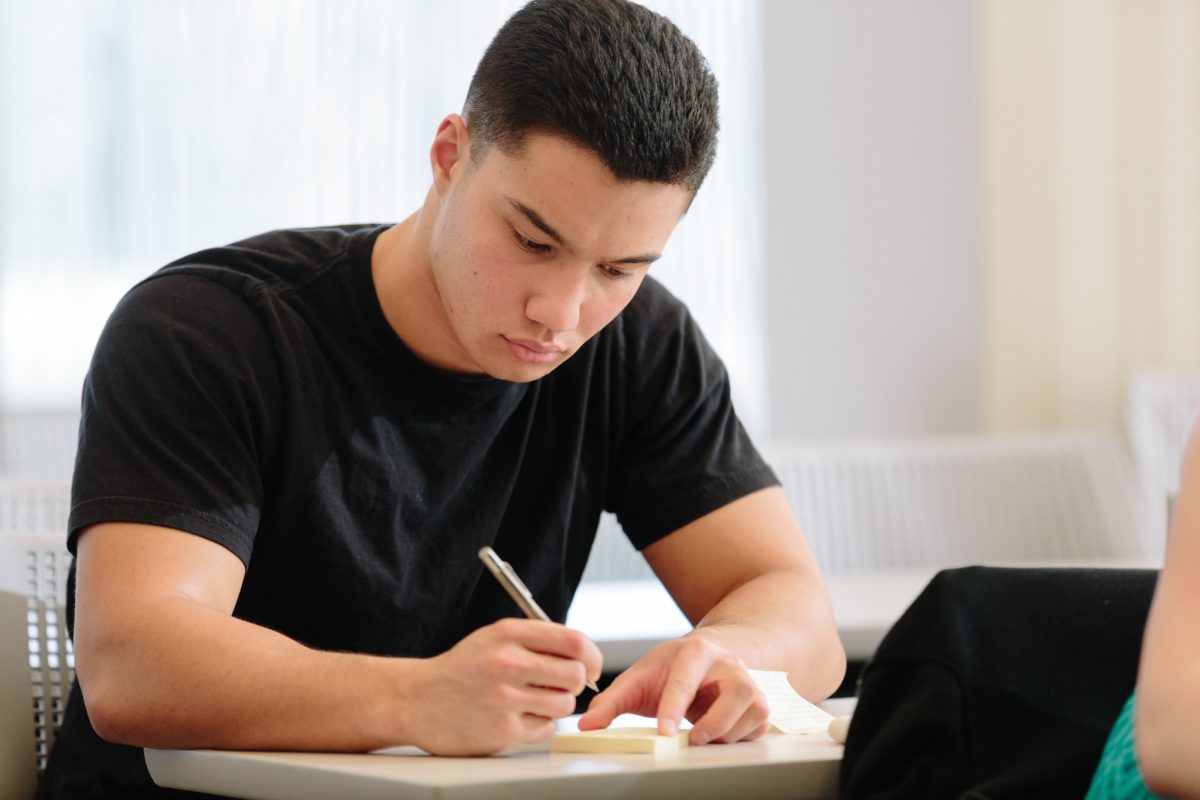
As part of the first-year engineering and computer science sequence of courses, students participate in the Career Passport to explore career opportunities in engineering fields. Passport activities include:
- Monthly Lunch with an Engineer Series – Students meet with industry representatives in their major for an informal lunch on campus to hear about careers in a variety of fields.
- Career Crawls – Students tour multiple companies in an industry, hear from an alumni panel, and talk with HR professionals.
- Industry Nights – Alumni and industry contacts present on a variety of themes in a panel format. This allows students to hear about industry trends, developing technology, and opportunities in the field.
- Club Involvement – Students attend club meetings with student interns and industry speakers to hear about careers in a field relevant to the club.
Engagement – Internships and Networking
Second and third-year students are usually focused on their fundamental (i.e., hardest) engineering coursework. They have more-or-less developed social networks, study habits, and routines, and are ready to think a little bit more about their futures. Many co-curricular activities and experiential learning programs provide opportunities for students to start engaging with their career exploration and narrowing down their options toward a clear career path.
- SHPE STEM Career Expo – In October, the Shiley School of Engineering, the UP Career Center, and the student chapter of the Society of Hispanic Professional Engineers host the SHPE STEM Career Expo featuring lightning round presentations from 25–30 companies and open networking for job and internship opportunities.
- SWE STEM Career Fair – In February, the Shiley School of Engineering partners with the UP Career Center and the student chapter of the Society of Women Engineers to host the SWE STEM Career Fair, welcoming more than 50 employers to meet with students in engineering and STEM majors.
- Networking Events – Together with the Pamplin School of Business, the Shiley School of Engineering hosts three outpost networking sessions (over school breaks) in San Francisco, Honolulu, and Seattle for students to meet with companies who hire engineering students for jobs and internships.
- MECOP Internship Program – Shiley students can participate in two 6-month long co-op internships at one of 150 companies in the Northwest through the MECOP internship program.
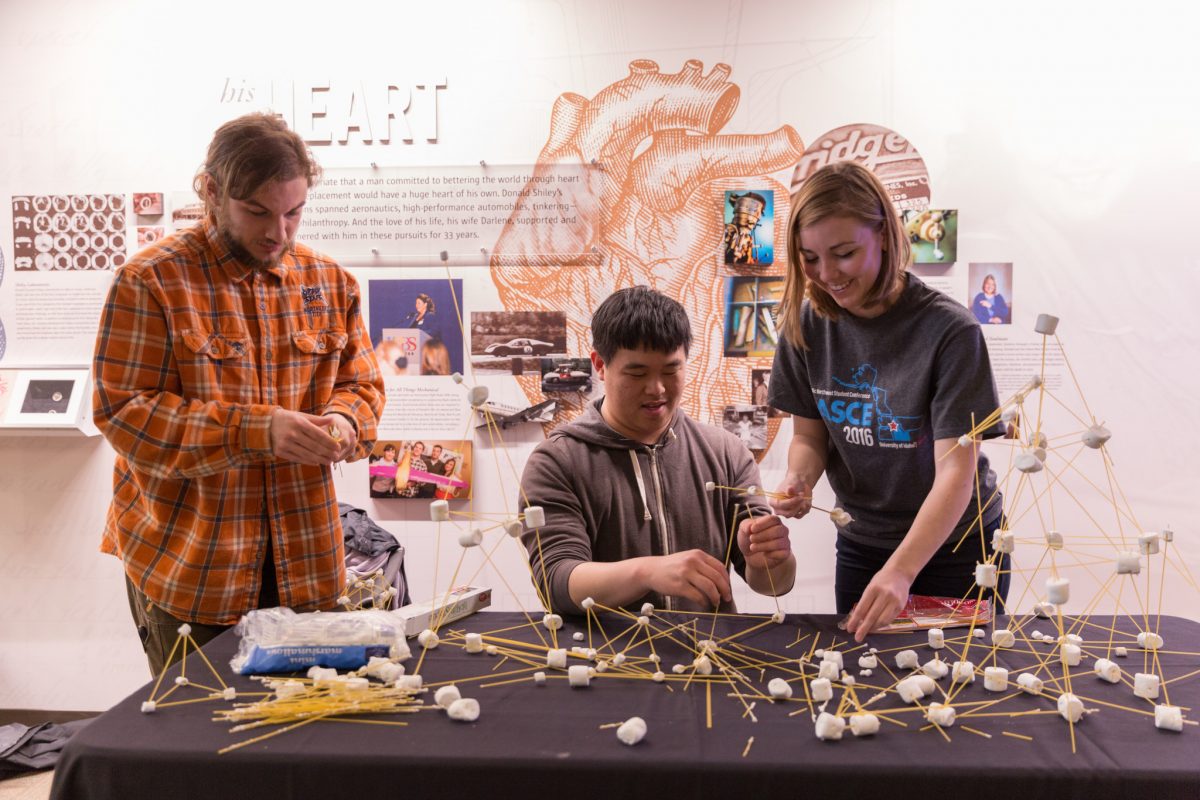
Experience – Capstone Projects
As our students near the end of their college experience, they are ready for meaningful professional experiences, deep interactions with industry, and culminating projects that help them integrate their education. The Shiley Project Hub (our capstone program) has been developing over the last few years to increase industry participation while still leaving room for creativity and entrepreneurship.
- Industry Sponsored Projects – More than 75% of capstone projects are currently sponsored by industry, government, or nonprofit partners. These partnerships provide meaningful opportunities for students to work on real-life engineering challenges with engineers in a field they are interested in pursuing a career.
- Creative and Entrepreneurial Student Projects – Some of the best projects are proposed by passionate students with a creative idea that they want to pursue through capstone. Engineering students and students in our Entrepreneur Scholars program (managed through the UP Franz Center) can develop a project in partnership with a faculty advisor.
- Competition Projects – Shiley students can also participate in legacy competition projects as part of the capstone program. Competition teams include the NASA Robotic Mining Competition, the ASHRAE Integrated Sustainable Building Competition, the Electric Vehicle Grand Prix, and the SAE Aero Design Competition.
- Showcase Events – Capstone teams present posters at the Winter Poster Showcase in December and final oral presentations at Founders Day or the Shiley Showcase in April. These showcases provide students the chance to present to both internal (faculty/student) as well as external (industry partners) audiences. The April events are a sort of grand finale to their college experience, celebrating the significant work accomplished through their time at the Shiley School of Engineering.
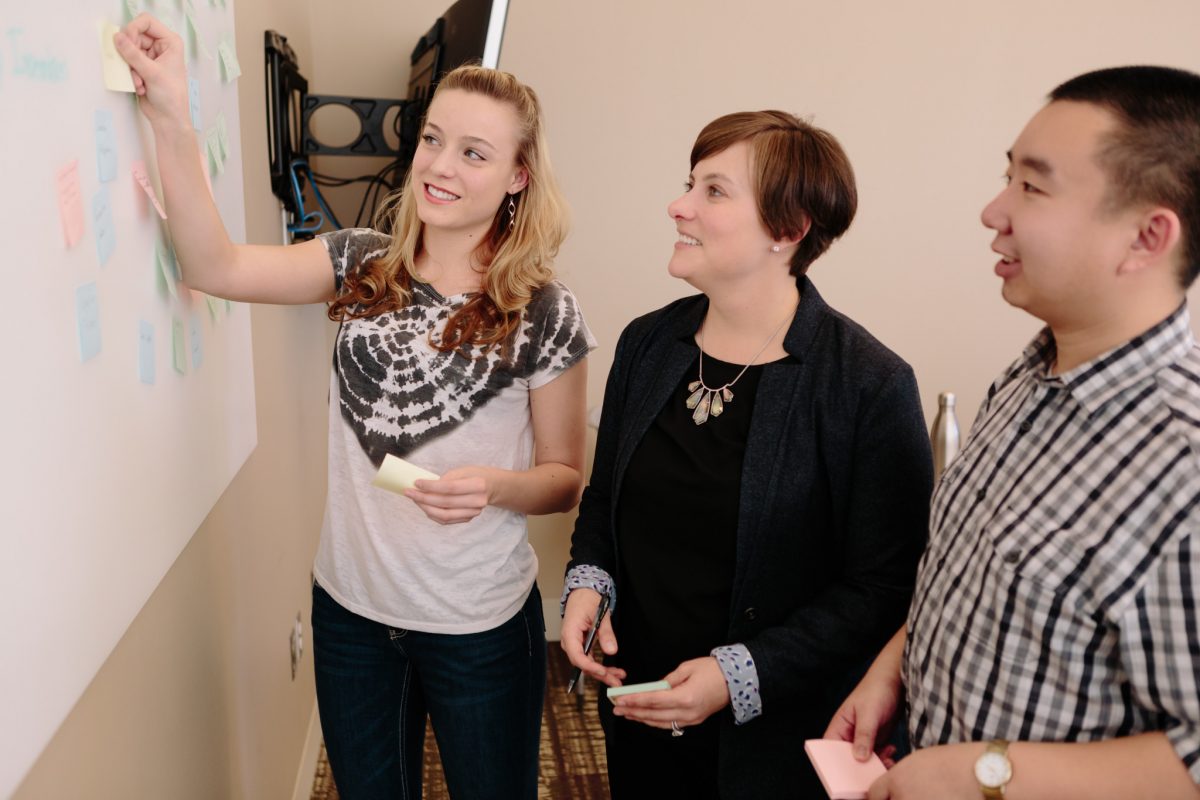
What’s Next – Growing Partnerships
The Shiley School of Engineering has been working hard for several years to develop students’ confidence and experiences around their own professional development. The goal is to have these various professional development experiences intertwined seamlessly through the four-year curriculum.
To continue to build meaningful opportunities for students to engage with industry through professional development programming, the Shiley School of Engineering is always looking for new partners! If you are interested in getting involved, please visit the industry and community partners page or contact Kate Rohl.
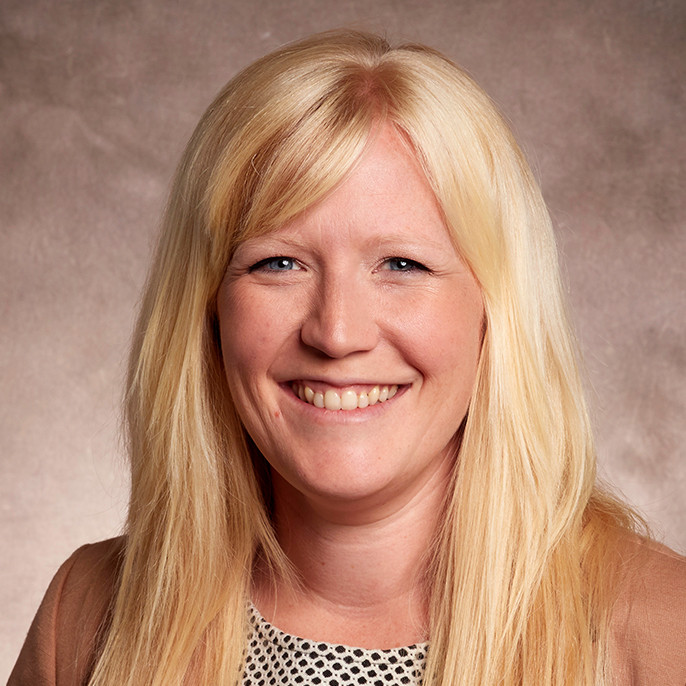
Kate Rohl is the Industry Relations Manager for the Donald P. Shiley School of Engineering.
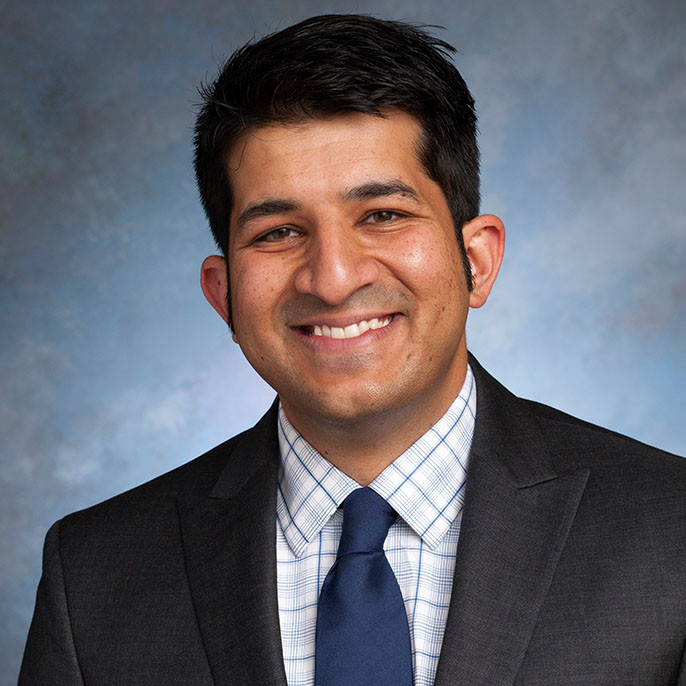
Shaz Vijlee is an Assistant Professor of Mechanical Engineering and coordinates the introduction to engineering program for first-year students.
